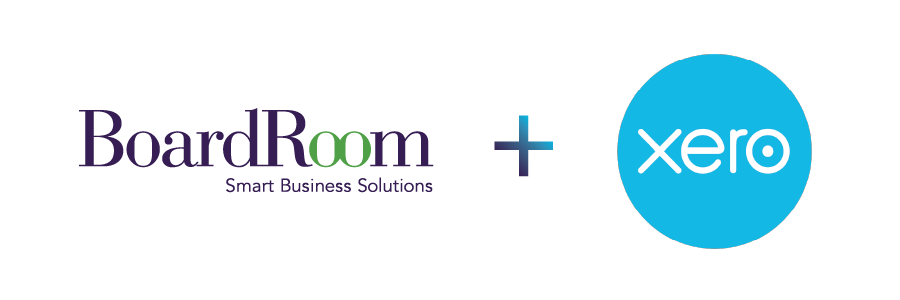In recent years, Singapore has faced a growing discrepancy between the demand for professional accounting services and the supply of qualified accounting graduates, which has proved challenging for businesses reliant on precise and timely financial oversight.
Yang Shuzhen, Director of Regional Accounting Services at BoardRoom Group, says the shortage of accountants in Singapore means businesses face potential operational issues, including the disruption of daily accounting functions and increased risks of non-compliance with tax and reporting requirements. These disruptions can also lead to reputational risks and strained relationships with vendors and clients due to the inability to meet financial obligations or report accurately.
Here, we explore strategic solutions, including outsourcing and professional development, to ensure businesses continue to have uninterrupted access to high-quality, reliable accounting services.
Mitigating risks with outsourced financial accounting services
The gap between supply and demand for qualified accountants is impacting organisations across the board, with a 10% decline in students pursuing accounting degrees during the past five years. In fact, it’s projected that an extra 7000 professionals will be required by 2025.
As companies grapple with this shortage, they may face operational disruptions across multiple areas of their business, such as:

Why outsourcing accounting could be beneficial to your business
Finding ways to mitigate the implications of the ongoing shortage of accountants is vital. That’s why outsourcing accounting services has become a key strategy for many businesses.
There are many advantages of outsourcing accounting services, beginning with repetitive, rule-based accounting tasks like accounts payable (AP) and accounts receivable (AR). This approach alleviates immediate staffing issues while also streamlining operations, allowing companies to focus on more strategic activities.
By outsourcing these routine functions, businesses can take advantage of specialised accounting services, including access to broader teams and skilled accountants who are well-versed in handling large volumes of transactions efficiently and accurately. This shift ensures continuity and reliability in financial reporting and enhances overall financial management.
Customising accounting functions
Shuzhen highlights flexibility as one of the key advantages of outsourcing accounting services. “In accounting, there’s a real ability to either fully outsource everything or just select specific tasks that are inefficient for the client to handle in-house,” she says.
Many businesses have traditionally viewed their financial operations as a single, indivisible block, adhering to an all-or-nothing approach. However, realising that these tasks can be managed independently reveals new opportunities for enhanced efficiency and specialised management.
“Clients often struggle to imagine the impact of removing a segment from their finance department, fearing that removing just one part could cause the entire system to collapse,” Shuzhen explains. “When outsourcing, there are typically specific challenges the client needs addressed, and our approach at BoardRoom isn’t to overhaul everything at once but to suggest incremental changes that enhance the overall function without disrupting the core processes.”
Process and efficiency improvement
Another reason why outsourcing accounting services is compelling for companies is the insight into best practices and innovations that dedicated professionals can bring. By applying recommended improvements, organisations can benefit from enhanced productivity, reduced operational costs, and a more strategic approach to financial management, ultimately leading to better financial outcomes.
Ensuring compliance
Outsourcing accounting functions, especially when facing internal resource limitations, also ensures that businesses remain compliant with regulatory requirements. Outsourcing firms specialise in compliance and are adept at keeping up-to-date with the latest changes in accounting standards and regulations. This is crucial for businesses operating in multiple jurisdictions or in complex regulatory environments. By leveraging the expertise of these providers, companies can avoid the pitfalls of non-compliance, such as fines, penalties and reputational damage.

Responding to the shortage of accountants in Singapore
In tackling the challenges posed by the shortage of accountants, leveraging technology, professional development and education for staff is essential.
Enhancing efficiency with technology
Using advanced technology can streamline tedious, manual processes, thereby reducing the workload on existing staff and allowing them to focus on more strategic, high-value activities. Technologies such as AI and automated data processing can enhance efficiency and accuracy in accounting tasks.
At BoardRoom, we are actively addressing the traditional perceptions of accounting as a labour-intensive field by integrating advanced technologies such as Optical Character Recognition (OCR) and AI into our operations. In doing so, the BoardRoom team also ensures that the adoption of these technologies does not compromise stringent internal controls. Our expert staff review the outputs from automated processes to maintain high standards of financial reporting.
Investing in talent
Ongoing professional development ensures staff remain current with the latest accounting standards and practices while growing their skills in new technologies and methodologies. This kind of training boosts morale by showing investment in employees’ career growth and enhances adaptability to changing business environments.
Shuzhen underscores the importance of such initiatives, saying: “Investing in our staff’s growth not only prepares us for the future but also helps in retaining talent by involving them more deeply in the business and organisational culture.”
BoardRoom demonstrates its commitment to enhancing the skills and knowledge of its workforce through several partnerships and recognitions:
- Recognised employer partner of CPA Australia: BoardRoom is committed to the professional growth of its employees, providing them with continuous learning and development opportunities.
- ACCA Approved Employer: BoardRoom has achieved this prestigious status in two categories – Professional Development and Trainee Development, Gold. This highlights the management team’s dedication to nurturing their workforce.
- Memorandum of Understanding with the Association of International Certified Professional Accountants (AICPA) and Chartered Institute of Management Accountants (CIMA): This partnership allows BoardRoom accounting staff to access industry best practices, engage with subject matter experts, explore thought leadership content and pursue top-tier professional qualifications.
- Chartered Accountant Accredited Training Organisation (ATO): As an ATO, BoardRoom offers early employment opportunities to Chartered Accountant (CA) candidates. By hiring, training, and developing Singapore CA Qualification candidates, BoardRoom provides them with the necessary resources and support to fulfill the three-year practical experience required to qualify as a Chartered Accountant of Singapore.

The way forward
As businesses navigate the evolving landscape of financial management amidst shortages and technological shifts, partnering with a company like BoardRoom can provide the expertise and innovation needed to safeguard financial operations. BoardRoom’s strategic approach to leveraging technology, combined with a commitment to continuous professional development, ensures that clients receive high-quality accounting services tailored to meet today’s challenges.
BoardRoom offers a comprehensive suite of accounting services, including regulatory compliance, financial reporting and risk management. By entrusting these critical functions to BoardRoom, companies can enhance their operational efficiency, maintain compliance with ever-changing regulations, and harness the power of cutting-edge technology in financial management. Explore how BoardRoom’s accounting services can help your company adapt and thrive in this evolving environment.
Contact BoardRoom for more information:
Related Business Insights
-

17 Oct 2024
Payroll Best Practices: Your Guide To Financial Services Payroll Management
Effective payroll management in financial institutions is key to compliance and risk reduction. Find out what you c …
READ MORE -

07 Oct 2024
Your Guide to Global Mobility Tax Solutions
Discover ways to navigate tax and compliance when working with international assignments with global mobility tax s …
READ MORE -

06 Sep 2024
Case Study: Optimising Tax Efficiency in Profits Repatriation
Discover how BoardRoom's two-step tax approach helps a multinational conglomerate evaluate tax-efficient profit rep …
READ MORE






























 In the long-awaited outcome for SGX to reveal its plans for the Quarterly Reporting (QR) framework in Singapore, a Consultation Paper has been issued by the Exchange – worded in a way that seems to leave the decision-making in the hands of the investing public and corporate stakeholders. Some sectors may be comforted that the Consultation has taken into consideration certain options and alternatives which indicate a fine-tuning of the current QR framework, rather than an outright razing of the practice. Perhaps this is in response to the loud detractors of the QR since its inception.
In the long-awaited outcome for SGX to reveal its plans for the Quarterly Reporting (QR) framework in Singapore, a Consultation Paper has been issued by the Exchange – worded in a way that seems to leave the decision-making in the hands of the investing public and corporate stakeholders. Some sectors may be comforted that the Consultation has taken into consideration certain options and alternatives which indicate a fine-tuning of the current QR framework, rather than an outright razing of the practice. Perhaps this is in response to the loud detractors of the QR since its inception. Unless you’re an ice-cream seller, it is near-impossible to please everyone. And I don’t think that SGX is going to find much luck in respect of this Consultation Paper. Some listed companies which hoped to be spared from what they claim to be a burdensome QR regime, citing unnecessary costs of compliance and reporting, will probably continue to gripe about retaining this practice. SGX has also been under pressure with the opinion that the QR regime makes Singapore unattractive to new IPOs. But is this true? Some Singapore companies which have attempted a dual-listing in an Exchange not-far-north have gone through much tighter listing-regulatory regimes and there doesn’t seem to be a lack of other companies trying the same.
Unless you’re an ice-cream seller, it is near-impossible to please everyone. And I don’t think that SGX is going to find much luck in respect of this Consultation Paper. Some listed companies which hoped to be spared from what they claim to be a burdensome QR regime, citing unnecessary costs of compliance and reporting, will probably continue to gripe about retaining this practice. SGX has also been under pressure with the opinion that the QR regime makes Singapore unattractive to new IPOs. But is this true? Some Singapore companies which have attempted a dual-listing in an Exchange not-far-north have gone through much tighter listing-regulatory regimes and there doesn’t seem to be a lack of other companies trying the same.